Beyond the BBQ: Meaningful Alumni Events for Summer
Skip the hot dogs and host summer events that actually matter. Discover 10 creative, connection-driven alumni event ideas designed to boost engagement and build lasting recovery support.
Skip the hot dogs and host summer events that actually matter. Discover 10 creative, connection-driven alumni event ideas designed to boost engagement and build lasting recovery support.
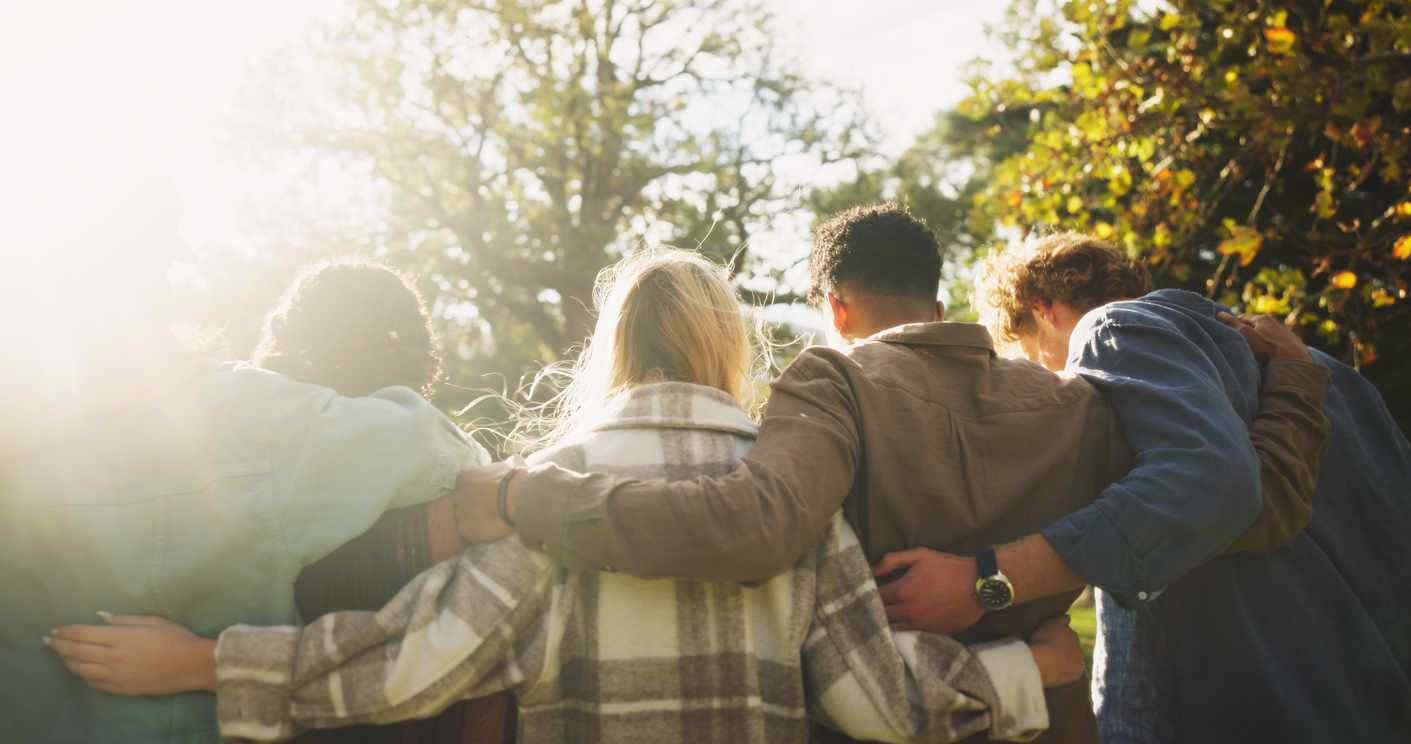
Summer alumni events are important, but they don’t have to be basic.
Every summer, alumni coordinators across the country dust off the folding tables, pick up a few Hebrew Nationals, send out an email blast, and hope treatment center alumni will show up in droves. And hey, sometimes they do. But more often than not, the same predictable programming leads to the same results: minimal turnout, strained small talk, and early exits.
The truth is, alumni engagement requires more than a rinse-and-repeat approach. The most impactful events go beyond simply gathering people together—they foster authentic connection, offer purpose, and meet alumni where they’re at in their recovery journeys. Whether it’s giving back, learning something new, or simply having a meaningful shared experience, your programming can (and should) reflect the diverse personalities within your alumni community.
This resource guide includes 10 thoughtful, budget-friendly event ideas designed to help you break the mold. Each idea is packed with personality, rooted in connection, and crafted to give your treatment center alumni something to genuinely look forward to this summer.
Connect with Encyrcle to explore even more creative alumni programming strategies—and see how our platform can help you streamline outreach, boost engagement, and keep alumni coming back. Schedule your free demo today.
Let go of perfection and embrace the mess. Messy Art Night invites your alumni community to unleash their creative sides with absolutely zero pressure to be “good” at art, because that’s not the point. Roll up some butcher paper, set up some splatter zones, throw on some music, and let the chaos begin. Paint with brushes, fingers, brooms, or squirt bottles… whatever gets the creativity (and dopamine) flowing.
Why It Works: Messy Art Night provides alumni with the opportunity to be expressive without being emotionally heavy. There’s no need for deep self-reflection or formal instruction, just an open invitation to have fun, make a mess, and maybe surprise themselves with some untapped artistic talent. This event encourages vulnerability through creativity in a way that feels playful and low-stakes, which makes it accessible to everyone.
Bonus Idea: For those who want to go a little deeper, add additional prompts like “paint your progress,” “what does your recovery feel like today,” or “paint your peace.”
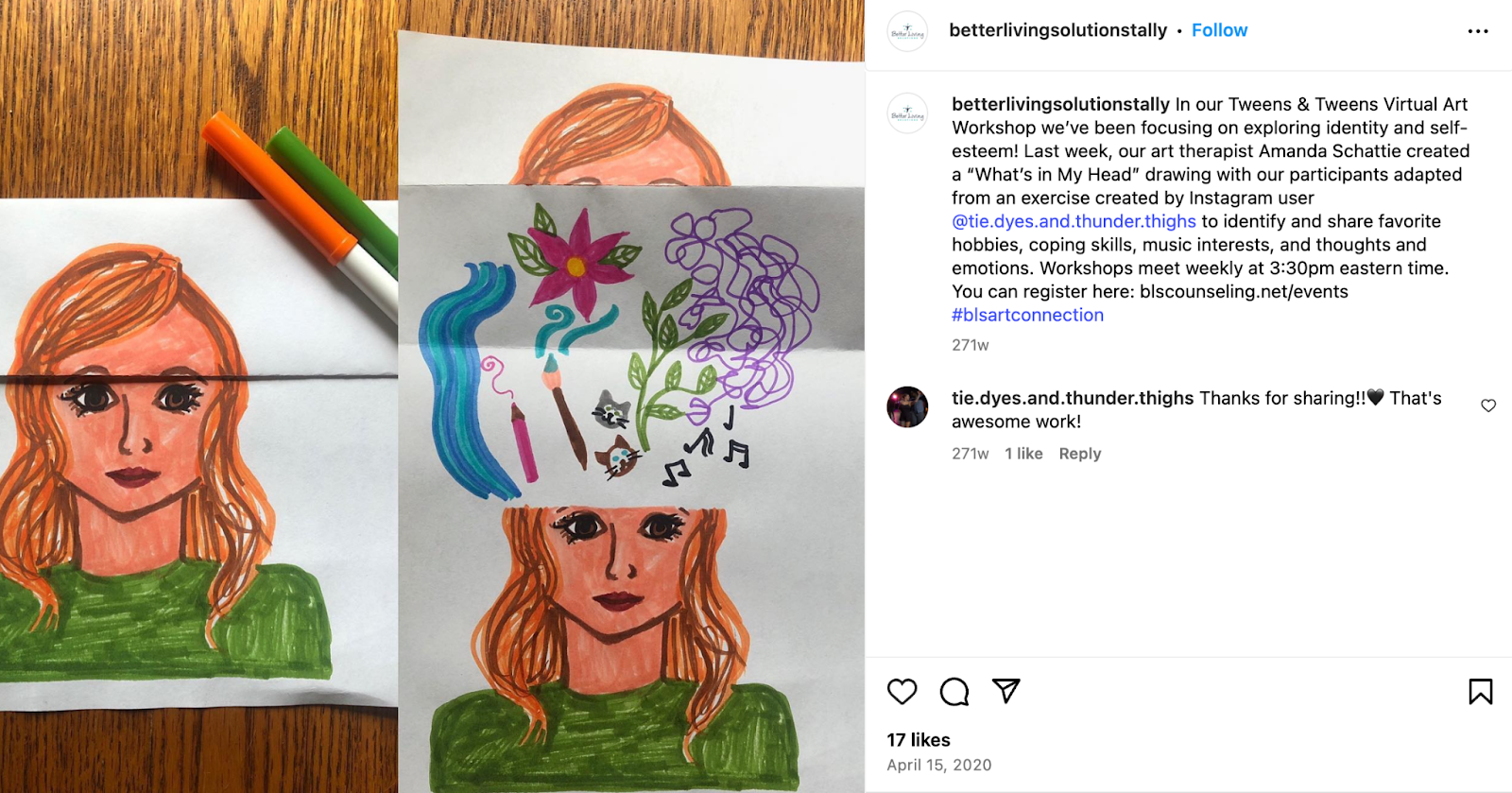
Not every event needs to be loud, social, or centered around conversation. A Silent Book Club and Journaling Picnic can be a literal breath of fresh air for the introverts in your alumni program. Invite alumni members to bring along a blank journal and their favorite book (or borrow one from a shared stack), find a patch of grass, and settle in for some collective quiet time. After a stretch of silent reading, offer some optional journaling prompts that encourage gentle reflection. Make sure it’s clear that there’s no pressure to share; you’re simply providing a safe, comfortable space for alumni to connect with themselves.
Why It Works: This kind of event honors the folks who recharge in solitude and appreciate intentional stillness. It offers connection without conversation and structure without stress. Alumni can participate as fully or minimally as they’d like, which makes it a low-barrier but meaningful option for engagement.
Bonus Idea: Keep things cozy with cold brew, LaCroix, and a snack spread—think local pastries, fruit, or trail mix. A few throw blankets and comfy floor cushions never hurt. Invite alumni members to bring a picnic-friendly snack to share if you’d like to go more potluck-style.
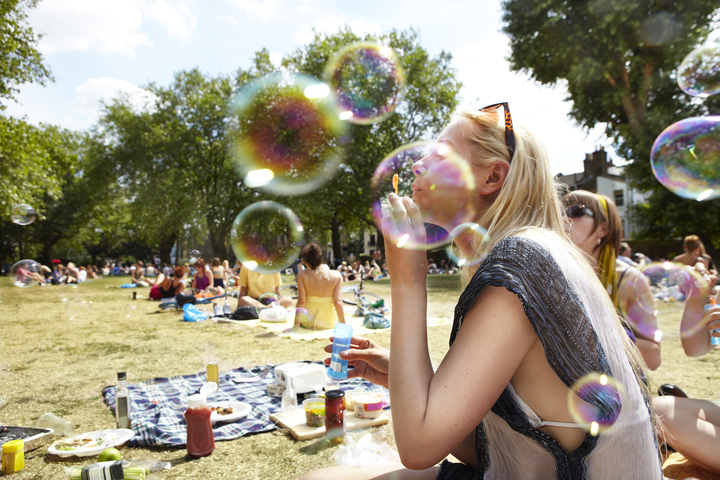
Nothing sparks laughter and camaraderie like a little over-the-top game show energy. Recovery Game Show Night is your chance to channel your inner Alex Trebek (or Steve Harvey, if you’re feeling dramatic) and host a fully customized trivia showdown. Create a Jeopardy-style board filled with fun, relevant categories—Recovery Lingo, Pop Culture in Sobriety, Famous Comebacks, Random Staff Facts, or A Deep Dive Into the 12 Steps.
Alumni can play solo or in teams, and questions can range from lighthearted to laugh-out-loud ridiculous. Sprinkle in some inside jokes, staff cameos, or multimedia surprises (like an “audio round” or “guess that celebrity mugshot”) to keep the energy high.
Why It Works: Game nights are a natural bonding tool. They playfully tap into competitive energy and give everyone a chance to laugh, connect, and show off random knowledge. It’s especially great for alumni who might not gravitate toward open sharing but still want to feel involved and seen. Best of all, you can tailor it specifically to your community, which makes it feel personal.
Bonus Idea: Level up the fun with weird and wonderful prizes. A tiny disco ball for “Most Dramatic Answer Delivery.” A fake mustache for “Best Team Name.” And of course, the coveted “Gold Star for Most Reluctant Participant.” The sillier, the better, because connection doesn’t have to be serious to be meaningful.
Below are some sample categories and associated questions to get you started.
Recovery Lingo
Pop Culture in Sobriety
Famous Comebacks
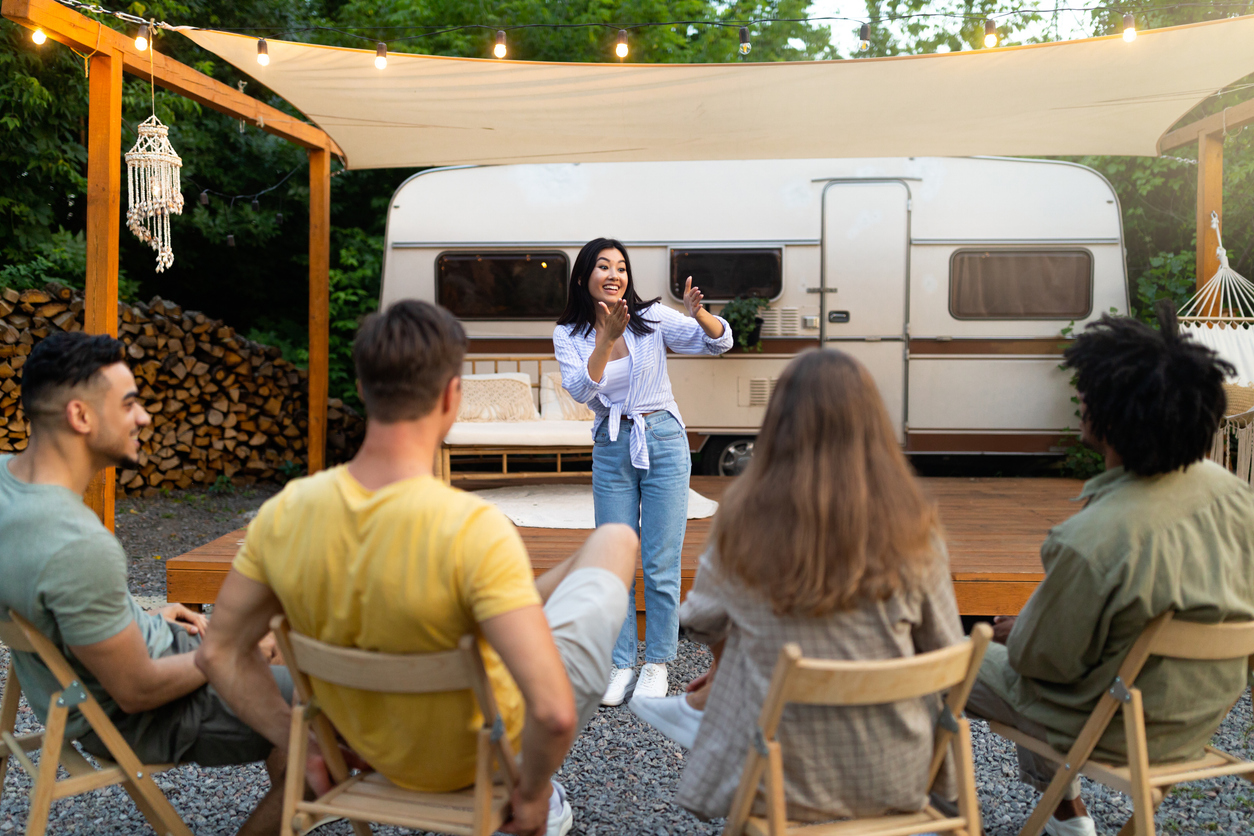
Give back, take a break from routine, and make an impact. A Volunteer Field Trip is a great way to combine community service with peer connection—two fundamental components of successful long-term recovery. Coordinate with a local non-profit in need of extra hands like an animal shelter, community garden, food pantry, or mutual aid group, and spend a few hours doing something that genuinely matters. Whether it’s walking rescue dogs, sorting donations, or planting vegetables, alumni get to reconnect with a sense of purpose outside of themselves.
Why It Works: Service work is a powerful pillar of recovery. It fosters humility, perspective, and gratitude—all while helping treatment center alumni feel useful, appreciated, and connected to something bigger. Engaging in volunteer work with their peers adds another layer of connection and accountability, without the pressure of deep emotional processing. Just one volunteer day can inspire alumni members to continue giving back on their own, picking up a commitment that helps keep them on track.
Bonus Idea: Add a little friendly competition by turning it into a challenge. “Which group can pack the most care kits in an hour?” or “Who can pull the most weeds by lunchtime?” Lighthearted goals make the day feel dynamic and give everyone something to laugh about on the ride home.
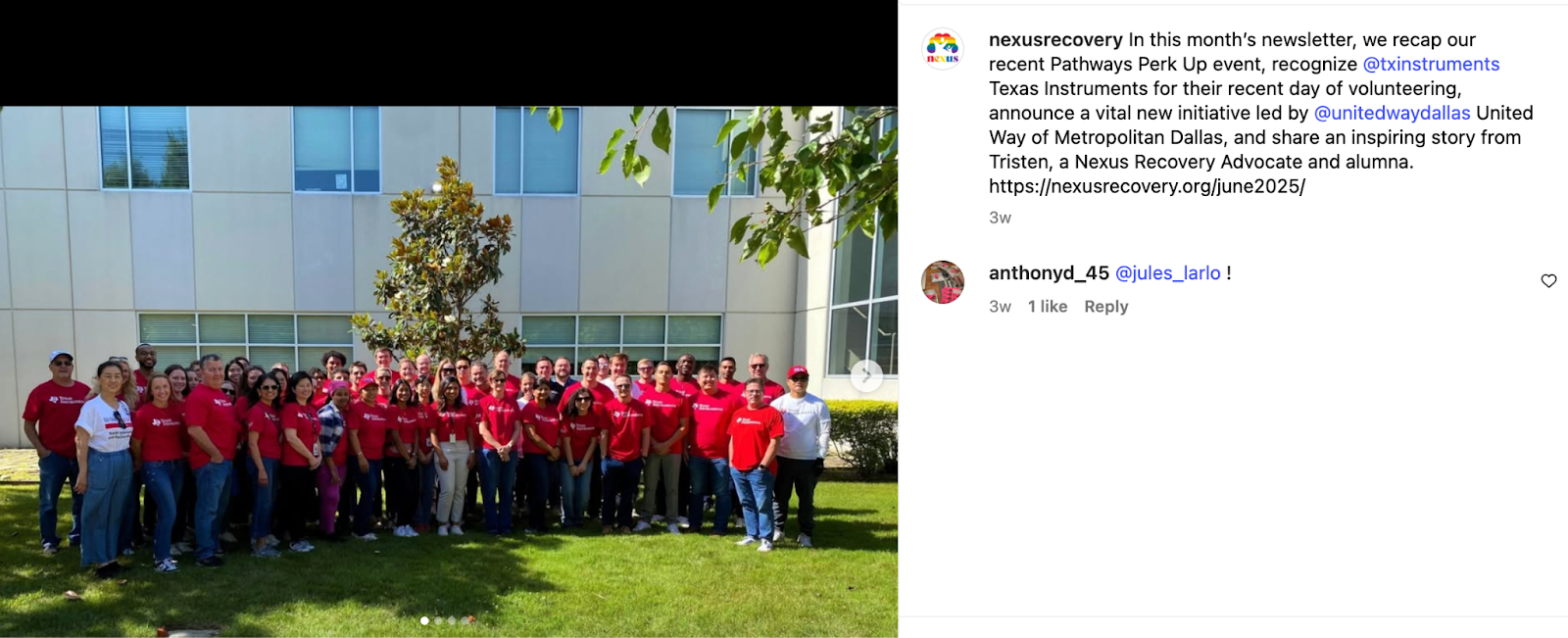
Shake things up with a Mocktail Mixology Lab. This fun-filled event offers alumni a hands-on, sensory experience that’s both fun and empowering. Set up tables with non-alcoholic mixers, fresh herbs, cut fruit, spices, syrups, and creative garnishes, and let alumni experiment with their own creative concoctions. You can invite a sober bartender to give a quick demo or simply search and print out a variety of recipes to inspire creativity. Bonus points for funky glassware and tiny umbrellas.
Why It Works: This event confirms that sober socializing isn’t just possible, it can actually be fun. A mocktail-making party helps normalize alcohol-free fun in a way that feels indulgent and celebratory, not restrictive. It’s interactive, playful, and lets alumni take pride in crafting something that feels special. It’s also a great conversation-starter, as people swap recipes and taste-test each other’s creations. Chances are your alumni members will find themselves in more than one social situation that involves drinking, and preparing them with something that feels more special than another Diet Coke can be a game changer.
Bonus Idea: Get extra creative and name the drinks after inside jokes, recovery milestones, or community themes. Think The Step Nine Spritz, Spiritual Awakening Sour, or “It’s Just a Suggestion” Sangria. Print mini menus or do a taste-off vote for “Most Likely to Be Served at a Wedding.”
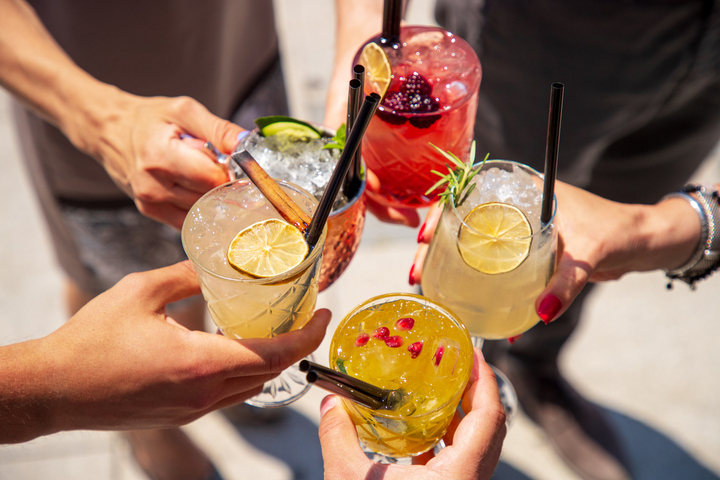
There’s something inherently calming about being outside as the day winds down. Less noise, cooler air, and a natural shift into a slower pace. A Night Hike and Intention Setting event gives alumni a chance to unplug and experience that transition together. Choose a low-intensity trail with a clear path, and plan a group walk around dusk or under the moonlight. Keep it simple: the hike itself can be mostly quiet or lightly guided with moments to pause, breathe, and take in the surroundings.
Once you reach a natural stopping point, gather for a few minutes of breathwork, light stretching, or intention-setting. This doesn’t need to be formal or structured, just an opportunity to reflect on where they’ve been, where they’re going, or how they’re feeling right now. The goal isn’t necessarily to process anything out loud, but to shift into a different environment that naturally supports connection and presence. Vibey.
Why It Works: Changing the environment can change the mindset. Nature has a way of softening emotional walls, and walking side-by-side (rather than sitting in a circle) often makes space for more easeful connection. This simple event encourages mindfulness, movement, and grounded reflection.
Bonus Idea: Print out small intention cards alumni can use to write down a personal word or phrase for the season ahead. Add in wearable glow sticks or LED bracelets to keep things visible and add a subtle sense of fun. End the night with a group photo under the stars (just be sure to turn on your flash).
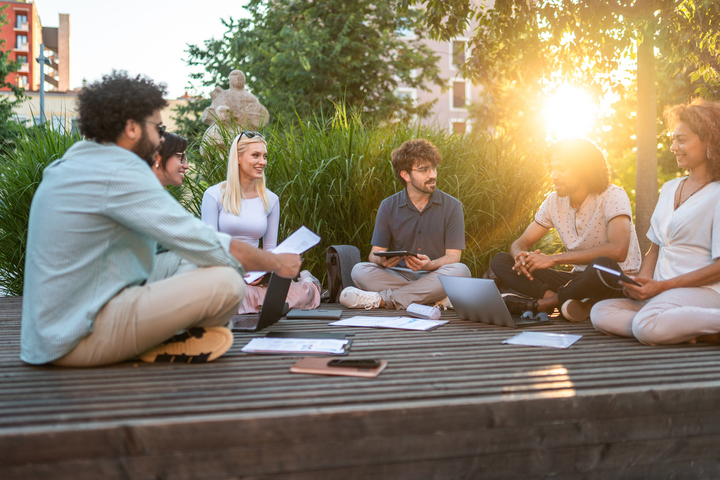
Everyone has a story (especially those of us who have lived through active addiction). Storytelling Night gives alumni a space to share freely, whether they feel like stepping up to the mic or simply listening to the experiences of their peers. Invite them to share recovery stories, creative writing, poetry, letters to their younger selves, or even anonymous reflections read aloud by staff or volunteers. Set the tone with warm lighting, cozy seating, and clear ground rules for confidentiality, respect, and non-judgment.
Why It Works: There’s deep power in being heard. This event invites vulnerability in a way that feels supported and optional. Whether someone chooses to speak or just listen, they walk away feeling more connected to the shared human experience of recovery. It also gives alumni a chance to process their own journey through creative expression, whether they share a story from the past, a goal for the future, or just a passing thought that needs a home.
Bonus Idea: Set up a “Story Vault,” a simple box where people can drop anonymous letters, reflections, or other pieces of writing to be read aloud later in the evening. Over time, this vault can become a powerful archive of resilience, humor, and hard-earned wisdom. Bonus points if you add music between stories or serve tea, coffee, and snacks to keep the energy grounded and nurturing.
Skip the dramatic Shakespearean monologues and moody acoustic covers—this open mic is built for FUN. Invite alumni to take the stage with whatever they want: music, poetry, original comedy, dramatic readings of bad Yelp reviews, reenactments of their strangest moments in detox, or their best Chistopher Walken impersonation. The possibilities are truly endless. Nothing is off-limits (within reason) and participation is completely optional. Remind everyone at the start of the evening to keep things kind and respectful.
Why It Works: This event is low-pressure, high-laughs, and flexible enough to include everyone, whether they’re performing or just watching. It creates space for creative expression without veering into “emotional talent show” territory. Plus, it celebrates the quirky, joyful, surprising sides of recovery that often go unspoken.
Bonus Idea: Give out tiny participation trophies, creating categories based on performances like “Raunchist Stand-Up Routine,” “Best Parody of a Katy Perry Song,” or “Most Inspiring Interpretive Dance.” Order a couple of pizzas and make a whole night of it.
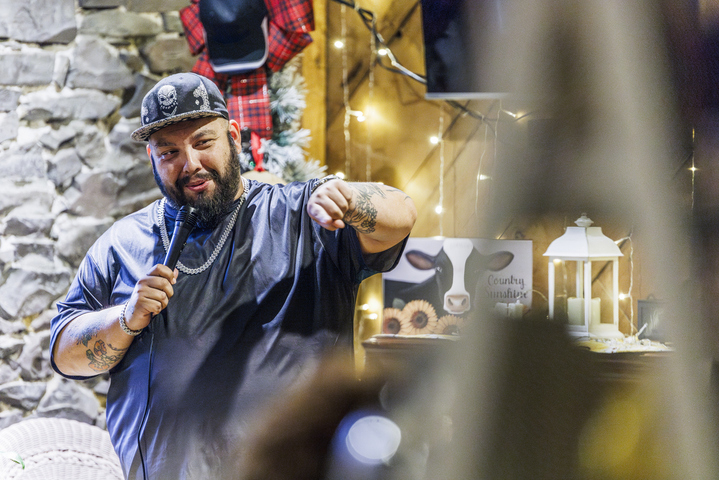
Think part connection-building, part movement, and part chaos, in all the very best ways. A Recovery Scavenger Hunt can turn a public park or your treatment center campus into an adult playground of clues, challenges, and inside jokes. Teams follow a series of prompts rooted in recovery themes, program milestones, or shared alumni memories. Think: “Find the spot where David was repeatedly caught vaping” or “Track down the staff member who swears by breathwork and Beyoncé.” A little more planning goes into this event, but the payoff will inevitably be worth it.
Why It Works: This event sparks teamwork and brings out everyone’s inner child. It encourages movement, laughter, and collaboration. It also taps into nostalgia and joy, reminding alumni of how far they’ve come while keeping the energy light and celebratory. Planning the event is also an opportunity for team bonding and collaboration. Take a walk down memory lane with other treatment center staff members as you come up with clues and challenges.
Bonus Idea: Include creative prompts like “Take a team selfie doing something goofy,” “Find the weirdest object that represents your recovery,” or “Create and perform a 5-second group chant about Step 6.” End with snacks, prizes, and a round of “best photo submissions” for extra laughs.
Connection doesn’t always come from conversation. Sometimes, it comes from quietly working alongside one another, adding your piece to the bigger picture. A collaborative art or mural project invites alumni to co-create something lasting: a painted canvas, a hallway mural, a sidewalk chalk mosaic, or even a series of tiles that fit together to form a whole. The materials don’t have to be fancy for the event to be impactful.
You can choose a theme, like growth, resilience, or community, or just let the art unfold organically. Some alumni might write words or affirmations, others might contribute abstract color or tiny doodles. Together, it becomes a visual representation of recovery—layered, imperfect, and deeply human.
Why It Works: Creating something side-by-side helps create connection in a way that doesn’t feel forced. It’s quiet and inclusive, perfect for treatment center alumni who prefer expressing themselves with creation over conversation. Most events end when attendees head home, but this one leaves a tangible reminder of shared experience.
Bonus Idea: Display the final piece somewhere visible in your facility as an ongoing reminder of collective strength, or design the project so each person can take a small piece of it home. Whether it’s a tile, a section of canvas, or a photo of the finished mural, it’s a powerful keepsake that says: You were part of something. You still are.
Creating meaningful events isn’t just about putting something on the calendar, it’s about crafting experiences that feel welcoming and worth showing up for. A truly impactful event doesn’t need a huge budget or flawless logistics. It just needs purpose, personality, and a sense of belonging.
The goal is to create moments that matter. Moments that remind alumni they’re part of something bigger. That they’re seen, valued, and still connected—even long after treatment ends. These quick planning tips will help you maximize your impact, reduce stress, and build events that people actually look forward to, without overcomplicating the process.
The more relaxed the vibe, the more likely people are to show up and feel safe being themselves. Avoid mandatory sharing or overtly therapeutic energy—unless the event is clearly framed that way. Let alumni participate on their own terms. Watching from the sidelines still counts as engagement. Sometimes just showing up and being around community is enough.
Want better ideas and a stronger turnout? Let your alumni take the wheel. Involving them in the planning process helps make events feel more authentic and less like a staff-led obligation. Consider forming a rotating “event squad” of alumni who help brainstorm, co-host, or emcee. It gives them ownership, builds leadership skills, and reinforces that the program is for them, not just about them.
The event might be over, but the connection doesn’t have to be. Use Encyrcle to automatically send post-event check-ins, gratitude texts, photo recaps, and invites to upcoming events.
Pro Tip: include a short feedback poll—just 3 quick questions via text—to gather honest input and improve your next event. Even a simple “What did you love?” and “What would you change?” go a long way.
Ditching the usual BBQs and bonfires doesn’t mean doing more. It means doing things with slightly more intention. Summer offers a unique opportunity to reconnect alumni with each other, with joy, and with a version of themselves that isn’t defined solely by their recovery journey. Whether it’s laughing over mocktails, hiking under the stars, or creating something messy and meaningful, these experiences plant seeds for long-term connection and growth.
With the right mix of creativity, consistency, and follow-through, your alumni events won’t just be fun—they’ll be unforgettable.
Want help keeping alumni connected after the event ends?
Let Encyrcle automate your follow-ups, gather real-time feedback, and help you identify who’s still engaged and who might need a little extra support.
Request a demo today.